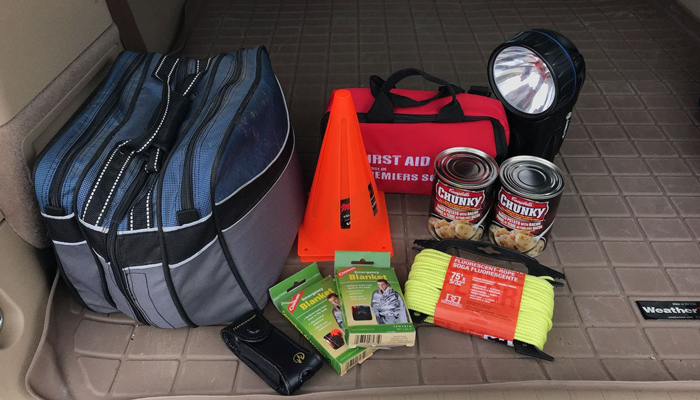Emergency Kits
Everybody can be more prepared for emergencies. Having an emergency kit is a great start.

It is best if you have a basic emergency kit in your home and a vehicle emergency kit in your car. Below are itemized lists of the items we suggest you have in each kit.
Basic Emergency Kit
- Water: two litres of water per person per day
- Non-perishable food: select items that do not require heat and/or water for preparation
- Manual can opener
- Flashlight and batteries
- Battery powered or wind up radio
- First aid kit
- Prescription medications (week supply, if possible)
- Infant formula, diapers and children's items
- Equipment required for people with special needs or disabilities
- Extra keys for house and vehicles
- Cash
- Copy of your family emergency plan
- Change of clothing and footwear
- Sleeping bags or blankets
- Garbage bags
- Toilet paper and other personal care items
- Basic tools
- Small fuel stove and fuel: Always follow manufacturer's directions. DO NOT use barbeques, fuel stoves or open flames indoors.
- Copies of personal documents, such as passports, birth certificates, insurance documents
- Candles and matches
* Update your kit and your emergency plan annually or if your family situation changes. Replace food, water, and batteries.
Vehicle Emergency Kit
- Bottled water
- Non-perishable food items
- Warm clothes and boots for every traveler
- Blankets
- Glow sticks (instead of candles)
- Flashlight and batteries
- Crank or battery-operated radio
- Small shovel
- Windshield scraper
- Booster cables
- First aid kit
- Safety cones
- Small toolbox
* Update your vehicle emergency kit for each season. Replace food, water, and batteries as required.